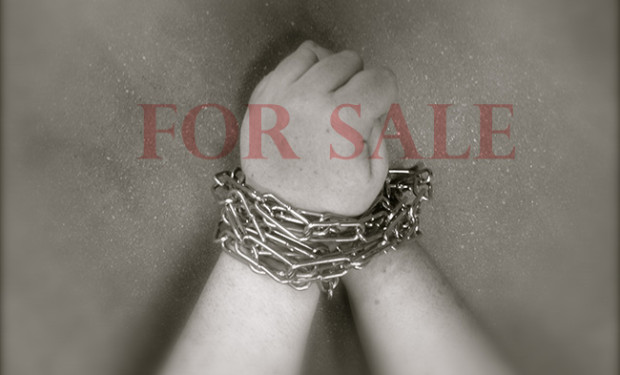North Carolina: No Longer Open For Business
Imagine being a ten-year-old child in the foster system, growing up believing that no person truly loves you and feeling as if you are only seen as a quick solution to a monetary need. Feeling lonely and desperate, you run away. Running away seems like a great option because this way, you become your own master, set your own rules, and live or die by your decisions.
The circumstances described above are faced by hundreds of young children in North Carolina. Within 48 hours of running away, one out of every three foster children becomes a victim of human trafficking, also known as modern day slavery. Because foster children can migrate from home to home, these children are easily manipulated and fall prey to the promises of love, attention, and a better life. Because of 8 these conditions, fifty percent of trafficking victims in North Carolina are minors. Worldwide, over 13.5 million minors are trafficked every year. Human trafficking is an invisible crime and falls prey to the old adage “out of sight, out of mind.” Yet, every day in North Carolina there are countless women and children who become slaves because they feel they have neither a choice nor a voice that matters.
I. World View of Human Trafficking
Human trafficking takes many forms: from women in nail salons to migrant farmer workers, prostitution and even family members selling their own children. Because of trafficking’s migrant and covert qualities, victims are shuffled from place to place, keeping them unable to orient themselves with their surroundings.
Of the two major types of human trafficking, sex trafficking is most well-known. In today’s world, sex has become the high that people seek, and a sex slave is the drug that provides the high. Pornography addiction runs rampant, sexually prominent advertisements sell best, and the industry has taught men and women of all ages that sex sells. Because of this mindset, people, particularly women and children, are bought and sold as property to please the desires of anyone who can pay.
To make matters worse, the trafficking industry is one of the most profitable industries as it grosses over $32 billion annually. The top three commodities sold each year are weapons, drugs, and people. It is truly a sad commentary on our society when a person is considered a commodity. A person is not an item to be bought and then disposed of once he has met the buyer’s needs. Each person is endowed with basic human rights that society must acknowledge in order to maintain an ordered civilization. Placing a price on a person is unacceptable because it cheapens the victim’s existence as human life becomes disposable.
II. Federal Statutory Scheme for Human Trafficking
Under the Federal statutory scheme, a violation of the human trafficking statute can result in up to twenty years in prison if the victim is an adult. If the child is a minor under the age of fourteen and aggravating factors exist, the penalty can be life imprisonment. If the child is under the age of fourteen and the crime is committed without aggravating factors the penalty can be up to twenty years in prison. But if the child is over the age of fourteen, then the highest penalty available is twenty years in prison. Federal legislation also provides penalties for the buyers of human trafficking victims and for those individuals who hold the victims’ legal documents, thereby providing a more holistic penal approach in chilling the supply and demand for trafficking victims.
III. North Carolina Human Trafficking Statistics and Statutory Scheme
Out of all 50 states, North Carolina is ranked eighth in the nation for the number of people trafficked within the state. According to FBI headquarters in Charlotte, a person can place a call to “order” a person, and within fifteen minutes a “slave” will be delivered and purchased. In the United States alone, between 15,000 and 18,000 people are trafficked through United States borders and into various parts of the world. North Carolina cannot prevent every trafficking transaction, but it can provide a voice for the unseen victims found in the state.
North Carolina law only provides minimal protection for trafficking victims. According to an article in the American Family Association Journal, Shared Hope International gave North Carolina an “F” for its legislation. North Carolina’s statutory scheme only provides up to six years in prison if the victim is an adult and fifteen years in prison if the victim is a child. Under current legislation, there are no penalties for buyers of trafficking victims. Thus, as long as there is a demand for human slaves which goes unpunished, a supply of victims will continue to be furnished.
In response to the overwhelming need for community awareness, many organizations including the Salvation Army, North Carolina Coalition Against Human Trafficking, Partners Against Trafficking Humans in North Carolina, and World Relief are building community awareness on the issue of human trafficking and how it affects North Carolina residents. These organizations stand in the gap for the unseen victims in North Carolina. They provide training and information to everyone who wants to learn more about human trafficking in the state. If you are interested in learning more about the services these organizations offer or how you can help, please contact the writer of this article. It is time to let human traffickers know that North Carolina is no longer open for trafficking business.





